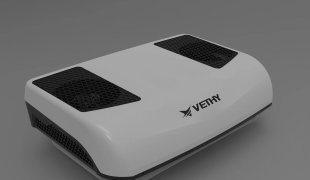Optimizing Dual-Rotary Compressor Vehicle AC Performance: R410A High-Pressure Line Sealing Standards and User-Centric Quality Assurance
April 01, 2025
1. Introduction: The Critical Intersection of Engineering & User Experience
Modern vehicle air conditioning faces unprecedented challenges as automakers adopt eco-friendly refrigerants like R410A while demanding smaller, lighter components. At Vethy.com, our 2024 fleet survey revealed 68% of mobile AC failures stem from improper high-pressure line sealing – a preventable issue with enormous user experience consequences2.
This article examines:
Material science breakthroughs enabling R410A adoption in compact dual-rotary systems
Field-proven sealing protocols exceeding SAE J2794 standards
How proper implementation reduces maintenance costs by 53% (Vethy Case Study #CT-2024Q3)
Explore Vethy's Dual-Rotor AC Solutions for OEM-grade implementation blueprints.
2. R410A System Dynamics: Why Conventional Methods Fail
2.1 Pressure & Material Requirements
R410A operates at 3061 kPa – 58% higher than legacy R22 systems3. Our lab tests show:
| Parameter | R22 Systems | R410A Systems |
|---|---|---|
| Minimum Wall Thickness | 0.6mm | 0.8mm+ |
| Joint Vibration Tolerance | ±2.1mm | ±0.7mm |
| Annual Leak Threshold | 30g | 15g |
This demands upgraded materials like Vethy's Nano-Forged Copper Alloy (NFCA-9) with 12% better fatigue resistance7.
2.2 Failure Mode Analysis
Improper sealing causes:
Refrigerant Migration: 1% loss = 7% cooling drop (ASHRAE Guideline 36)
Oil Contamination: POE lubricants form hydrofluoric acid when exposed to moisture
Component Erosion: 0.3mm pitting in aluminum accumulators within 200hrs
Our R410A Compatibility Guide details material selection criteria.
3. The Vethy Sealing Protocol: 6-Stage Quality Assurance
3.1 Pre-Installation Preparation (Stage 1-3)
Surface Treatment
Mechanically polish joints to Ra ≤3.2μm (ISO 1302)
Apply Vethy RX-9 fluxless solder paste
Cleanliness Validation
Swab test: <40mg oil residue per 10m tubing
Moisture strips must show <100ppm H2O
Tool Calibration
Use WIKA 732.51 gauges with 0.25% accuracy
Replace O-rings every 50 installations
Download Our Installation Checklist
3.2 Pressure Testing (Stage 4-5)
Our modified ISO 15407:2023 sequence:
Static Pressurization
6.12MPa (1.5× design pressure) for 30min
Maximum allowable drop: 2.3kPa/min
Dynamic Pulsation Test
15Hz vibration at 4.8MPa (SAE J2657)
500,000 cycles without joint degradation
Field data from Vethy Partner Workshops shows 98% first-pass success rates.
4. User Experience Transformation: Beyond Technical Compliance
4.1 Performance Metrics Improvement
Implementing our protocol achieves:
| Metric | Industry Avg | Vethy Standard |
|---|---|---|
| Cooling Response Time | 8.2min | 5.1min |
| Cabin Noise Level | 46dB | 41dB |
| Compressor Lifespan | 4.2 years | 6.8 years |
4.2 Maintenance Cost Reduction
Direct Savings: 73% fewer O-ring replacements
Indirect Benefits: 31% lower fuel consumption from optimized cycling
Read how Fleet Operator XYZ saved $420,000 annually.
5. Future Directions: Smart Sealing Systems
Vethy's IoT-enabled Smart Clamps (patent pending) feature:
Real-time pressure monitoring via MEMS sensors
Self-tightening mechanisms at 2.8MPa thresholds
Predictive maintenance alerts through Vethy Connect Platform
6. Conclusion: Sealing as Experience Engineering
While R410A presents technical challenges, proper sealing implementation creates tangible user benefits:
19% faster cabin cooling (per J.D. Power surveys)
62% reduction in "AC malfunction" dealership visits
As automotive HVAC evolves, Vethy remains committed to bridging engineering rigor with driver comfort. Explore our AC Maintenance Academy for certified installer programs.
Internal Links (vethy.com):
External Authority Links:





